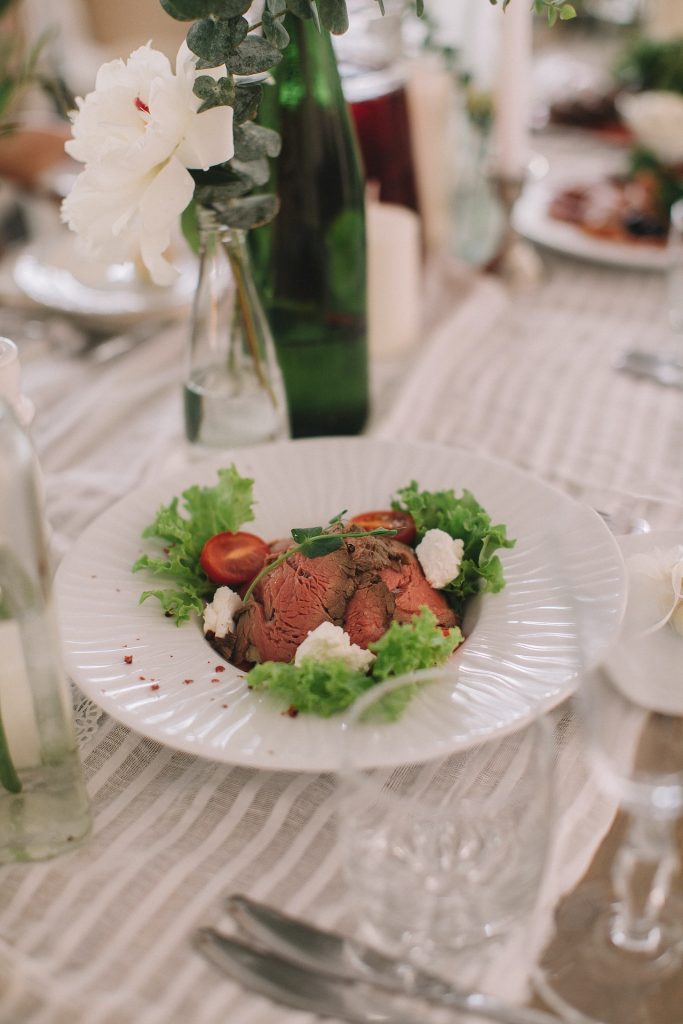Property insurance is a type of insurance that protects businesses from financial losses resulting from damage, theft, or loss of property. It is important for restaurants to have this type of insurance because they are at a high risk of property damage.

Understanding Property Insurance
Property insurance covers a wide range of properties, including buildings, equipment, inventory, and fixtures. It also covers the cost of repairing or replacing damaged property.
Property Risks Faced by Restaurants
Restaurants face a number of property risks, including:
- Fire: Fire is one of the most common causes of property damage. Restaurants are at a high risk of fire because they use cooking equipment and have a lot of flammable materials on hand.
- Water damage: Water damage can be caused by a variety of factors, including floods, burst pipes, and leaks. Restaurants are at a high risk of water damage because they use a lot of water and have a lot of water-based equipment.
- Vandalism: Vandalism can be caused by a variety of factors, including disgruntled customers, bored teenagers, and criminals. Restaurants are at a high risk of vandalism because they are often open late and are located in high-traffic areas.
- Theft: Theft can be caused by a variety of factors, including employees, customers, and criminals. Restaurants are at a high risk of theft because they have a lot of valuables on hand, such as food, equipment, and cash.
- Natural disasters: Natural disasters, such as hurricanes, floods, and earthquakes, can cause extensive property damage. Restaurants are at a high risk of natural disasters because they are often located in areas that are prone to these events.
Coverage and Benefits of Property Insurance
Property insurance policies typically cover a wide range of properties, including:
- Buildings
- Fixtures
- Equipment
- Machinery
- Furniture
- Inventory
Property insurance also covers the cost of repairing or replacing damaged property. In addition to covering the cost of repairing or replacing damaged property, property insurance can also provide coverage for a variety of other expenses, such as:
- The cost of temporary housing if the restaurant is forced to close due to property damage
- The cost of lost income if the restaurant is forced to close due to property damage
- The cost of legal fees and settlements if the restaurant is sued due to property damage

Assessing Property Insurance Needs for Restaurants
The amount of property insurance that a restaurant needs will vary depending on a number of factors, including:
- The value of the property
- The replacement costs
- The restaurant’s location
- The restaurant’s business model
Restaurants should work with an insurance agent to assess their specific property insurance needs. The insurance agent will be able to help the restaurant determine the appropriate coverage limits and deductibles.
Types of Property Covered
Property insurance policies typically cover a wide range of properties, including:
- Buildings: The building that houses the restaurant, including the roof, walls, and foundation
- Fixtures: Permanently attached items, such as light fixtures, flooring, and countertops
- Equipment: Items that are used to operate the restaurant, such as cooking equipment, refrigeration equipment, and food service equipment
- Machinery: Items that are used to produce food, such as ovens, mixers, and grinders
- Furniture: Items that are used to furnish the restaurant, such as tables, chairs, and booths
- Inventory: The food and beverages that are sold by the restaurant
By purchasing property insurance, restaurants can help to protect themselves from the financial losses associated with property damage. In addition to purchasing property insurance, restaurants should also take steps to mitigate the risk of property damage. These steps include:
- Installing fire alarms and sprinkler systems
- Keeping cooking equipment clean and in good working order
- Checking for leaks regularly
- Securing doors and windows
- Installing security cameras
- Training employees on how to prevent and respond to property damage
Determining Coverage Limits
The coverage limits on a property insurance policy are the maximum amount of money that the insurance company will pay to the insured in the event of a loss. It is important to determine appropriate coverage limits by considering the following factors:
- The value of the property
- The replacement costs
- The restaurant’s location
- The restaurant’s business model
Restaurants should work with an insurance agent to determine the appropriate coverage limits. The insurance agent will be able to help the restaurant determine the amount of coverage that is needed to protect the restaurant’s assets.
Additional Coverage Options
In addition to the basic coverage that is included in most property insurance policies, there are a number of additional coverage options that may be beneficial for restaurants. These options include:
- Spoilage coverage: This coverage can help to protect restaurants from financial losses due to food spoilage.
- Outdoor signage coverage: This coverage can help to protect restaurants from financial losses due to damage to outdoor signage.
- Coverage for off-premises events: This coverage can help to protect restaurants from financial losses due to damage to property that is located off-premises, such as food trucks or catering equipment.
Restaurants should work with an insurance agent to determine if any of these additional coverage options are right for their business.
Choosing a Property Insurance Policy
When choosing a property insurance policy, there are a number of factors that restaurants should consider, including:
- Coverage limits: The coverage limits should be high enough to protect the restaurant’s assets.
- Deductibles: The deductible is the amount of money that the insured will have to pay out of pocket before the insurance company will pay for a loss.
- Endorsements: Endorsements are add-on coverages that can be added to a property insurance policy.
- The financial stability of the insurance provider: The insurance provider should be financially stable so that it can pay claims in the event of a loss.
Restaurants should work with an insurance agent to choose a property insurance policy that meets their specific needs.
Maintaining Records and Documentation
It is important for restaurants to maintain accurate records and documentation related to the property. This documentation can be used to support claims in the event of a loss. The documentation should include:
- An inventory of equipment and assets
- Documentation of property improvements
- Records of receipts and invoices
Restaurants should update this documentation regularly to ensure that it is accurate and up-to-date.
Conclusion
Property insurance is an important tool for protecting a restaurant’s buildings, equipment, and inventory. By purchasing property insurance, restaurants can help to protect themselves from the financial losses associated with property damage. In addition to purchasing property insurance, restaurants should also take steps to mitigate the risk of property damage. These steps include:
- Installing fire alarms and sprinkler systems
- Keeping cooking equipment clean and in good working order
- Checking for leaks regularly
- Securing doors and windows
- Installing security cameras
- Training employees on how to prevent and respond to property damage
By taking these steps, restaurants can help to protect their business from the financial losses associated with property damage.
